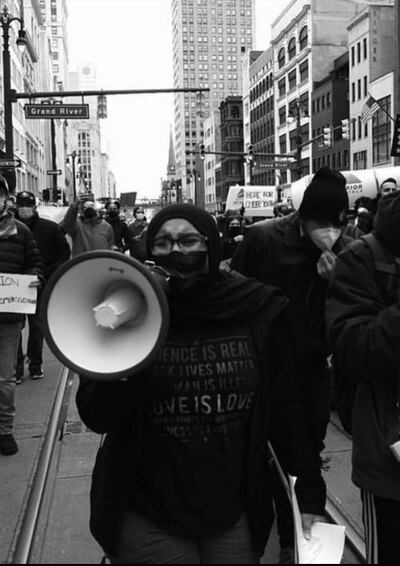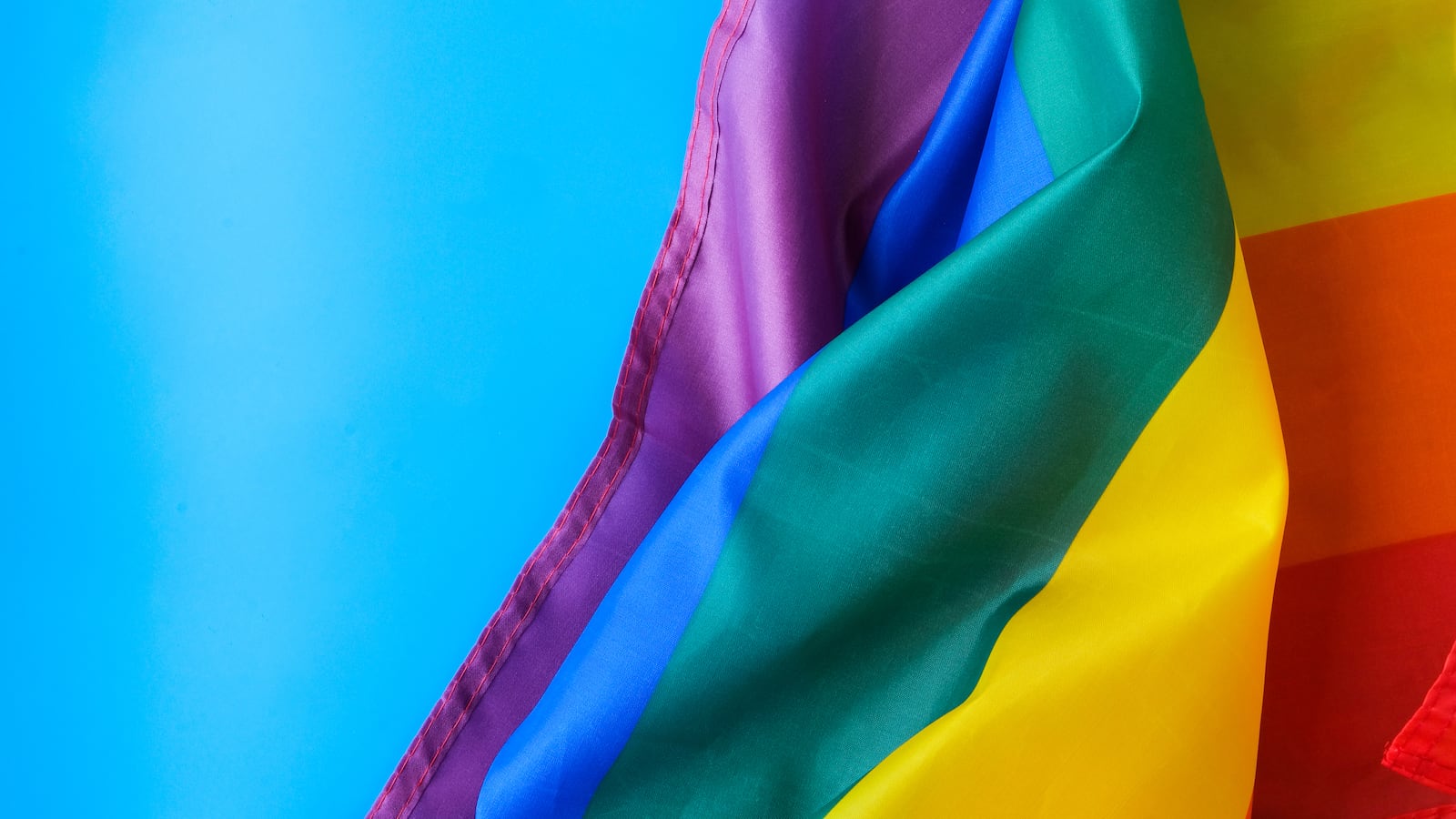On June 1, 2022, the first day of Pride Month, I walked through the halls of my high school, Cass Tech, draped in a flag featuring 11 vibrant colors. Throughout the day, I witnessed many different reactions: cheers, compliments, and eyes glistening at the mere exposure of representation. But I also witnessed stares, whispers, and gossip. It did not end there.
As a queer woman of color, I felt speechless, weak, and frightened by the more negative reactions. As a youth activist and community organizer, I felt emboldened to tell my story and advocate for safe, inclusive schools in Detroit.

I mobilized with other youth activists and organizers across Detroit to show our disapproval of Florida HB 1557, more commonly known as the “Don’t Say Gay” law, which restricts classroom conversations about gender identity and sexuality. In downtown Detroit, dozens of students and educators gathered to defend queer and trans rights in Florida. But the question remains: Is Detroit serving its LGBTQIA+ youth? How can the city support youth who want to create inclusive spaces here? Though Detroit is progressive on issues of race, homophobia and transphobia remain common. As a queer student, it should not be my responsibility to guide my peers and teachers to unlearn homophobia and transphobia; it is mentally exhausting.
Throughout my years as a Detroit public school student, I never learned about key moments in queer history and liberation, like the Stonewall riots, the origins of the Pride movement and flag, and the fight for the legalization of gay marriage. My teachers never centered these lessons and my textbooks haven’t reflected them either. I wasn’t taught about various gender identities and sexualities, and that can make it harder for students to discover who they are.
As a queer student, it should not be my responsibility to guide my peers and teachers to unlearn homophobia and transphobia.
Although my generation is consuming media that openly discusses queer and trans history, the same cannot be said for some older generations of educators. As a result, this can lead LGBTQIA+ youth like me to feel unsafe in their classrooms. For example, queer students may not feel comfortable coming out or identifying publicly outside of the gender binary. They may not feel comfortable wearing gender-affirming clothing; carrying a Pride flag; or having a romantic partner who does not uphold societal values of cisgender, heterosexual relationships.
Rather, I have witnessed slurs, insults, the fetishization of lesbians, and sexuality stereotypes circulating in Cass Tech classrooms. It is overwhelming and mentally exhausting to continuously defend myself and my community while organizing and advocating for change. According to the Trevor Project estimates, 1.8 million LGBTQ individuals ages 13-24 seriously consider suicide each year in the U.S. — and one of them attempts suicide every 45 seconds. Homophobia and transphobia hurt young people’s mental health. In too many cases, the hatred is costing lives.
Our schools must become a reflection of the diverse identities they are filled with. As a queer activist, I will continue advocating for inclusive schools. Pride Month should be acknowledged and celebrated — especially on our school calendars.
In fact, at the Detroit school board meeting scheduled for Tuesday, July 12, the board will vote whether or not to recognize Pride Month on its academic calendar. This could set the precedent for further changes to advance equality for queer and trans students. This vote could mark the beginning of a truly inclusive Detroit district. I urge students to speak at the board meeting; I urge parents to support their children there; I urge teachers to show up and celebrate their queer and trans students, and most importantly, I urge board members to recognize Pride Month for the upcoming school year.
I hope that, one day, Pride Month is celebrated in our schools, rainbows fill the fractures in our walls, and queer students' voices are amplified in classrooms, in communities, and in policy-making.
A version of this essay originally appeared on the Skillman Foundation website. It is republished here with permission.
Hafiza Khalique is a Detroit-based community and grassroots organizer. A rising senior at Cass Tech, Hafiza spends most of her time organizing on issues including LGBTQ+ rights, youth voice, gun violence prevention, reproductive freedom, and most importantly, education justice. Through her work, Hafiza hopes to better education for all students across Detroit.


